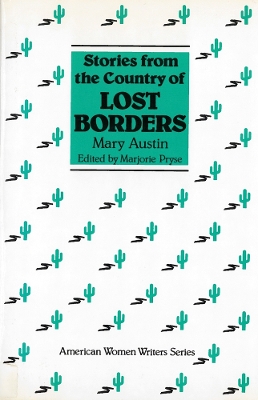American Women Writers
1 total work
Stories from the Country of Lost Borders by Mary Austin
by Mary Austin and Marjorie Pryse
Published 1 April 1987
Mary Austin's The Land of Little Rain (1903) and Lost Borders (1909), both set in the California desert, make intimate connections between animals, people, and the land they inhabit. For Austin, the two indispensable conditions of her fiction were that the region must enter the story "as another character, as the instigator of plot," and that the story must reflect "the essential qualities of the land."
In The Land of Little Rain, Austin's attention to natural detail allows her to write prose that is geologically, biologically, and botanically accurate at the same time that it offers metaphorical insight into human emotional and spiritual experience. In Lost Borders, Austin focuses on both white and Indian women's experiences in the desert, looks for the sources of their deprivation, and finds them in the ways life betrays them, usually in the guise of men. She offers several portraits of strong women characters but ultimately identifies herself with the desert, which she personifies as a woman.
In The Land of Little Rain, Austin's attention to natural detail allows her to write prose that is geologically, biologically, and botanically accurate at the same time that it offers metaphorical insight into human emotional and spiritual experience. In Lost Borders, Austin focuses on both white and Indian women's experiences in the desert, looks for the sources of their deprivation, and finds them in the ways life betrays them, usually in the guise of men. She offers several portraits of strong women characters but ultimately identifies herself with the desert, which she personifies as a woman.
